'The love of a neighborhood:' how the pandemic has strengthened community on Tacoma's MLK Jr. Way
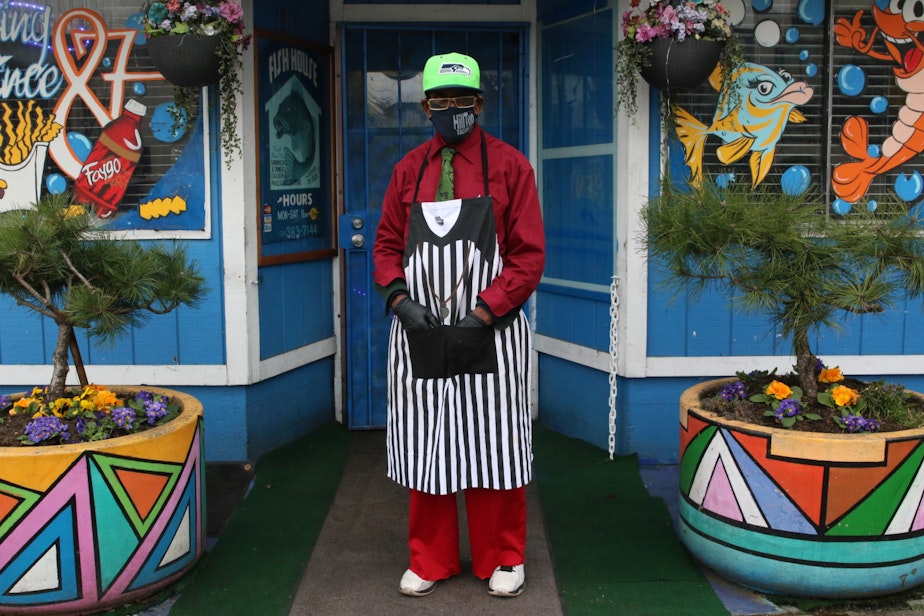
Every neighborhood is experiencing the pandemic in a different way. And so, we’re checking in on some important places around the region, to see how people are doing there. These stories are part of a new KUOW series called the Main Street Project.
This week, we visited Martin Luther King Jr. Way in Tacoma’s Hilltop neighborhood.
T
he Hilltop neighborhood in Tacoma has been through a lot. In the 1980’s, it suffered from gang violence. In recent years, you're more likely to hear concerns about gentrification. Rising rents are pushing businesses and residents out of this historically Black neighborhood.
Now, there’s the pandemic. People tell me challenges like this have bound them together.
“Hilltop has a – well, there’s like a spiritual thing, too," said Brother Anthony Mohammad, a cofounder of the Fish House Café. "It’s the generosity. The love of a neighborhood. We call it Hilltopia.”
Mohammad said the word "Hilltopia" was coined by the poet Antonio Edwards Jr., who once lived here.
Sponsored
Outside of Mohammad's restaurant at lunch time, customers line up all the way down the sidewalk. He said: that’s Hilltopia at work.
“During the pandemic, it’s been even increased — in that kind of attitude," he said. People will come in, and we thank them for coming in, and they say, 'No, we want to make sure you say in business.'”
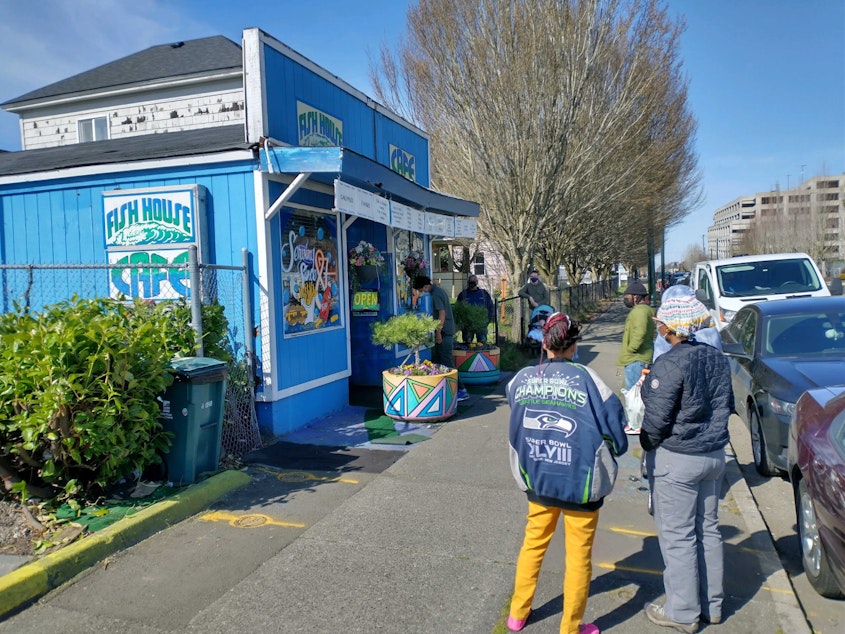
Mohammad said this neighborhood has been hit hard by Covid. The evidence is anecdotal, but a lot of his customers have stories.
One of those customers is Coretta Harwood. She owns the Scott Funeral Home down the street. She’s seen the impact of Covid up close.
Sponsored
“Lots of deaths. There was one day that I said, 'I don’t know if we get any more calls if we can help anybody else today,'” Harwood.
They ran out of room to put the bodies.
“We ran out of space, we ran out of manpower. People going months with no days off,” Harwood said.
Covid deaths have been down lately, but she’s still overworked. At her funeral home, Harwood's seeing more people who’ve died from strokes and suicides. She said it’s taken an emotional toll on her.
“I’m not doing that well, most days, in all honesty.”
Sponsored
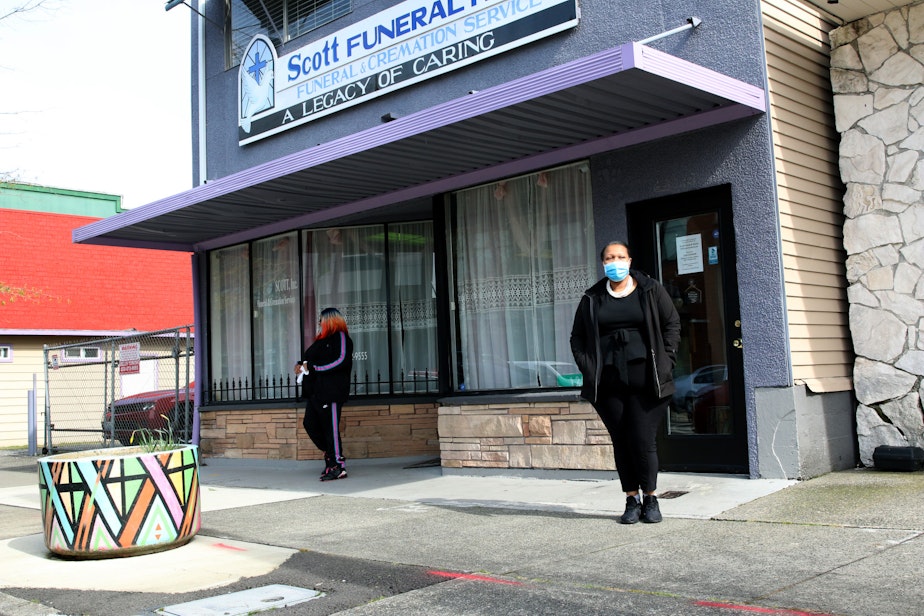
And so, she prays a lot.
“When I can, I take…even just 10 minutes — I go hide in the dark, I’ll just sit in the closet. And just shut down all noise — all sensory input from around me and just recharge. Because when I come out of that closet, I don’t know what I’m going to be facing.”
That’s how she stays focused. But you know what makes her happy? Taking a stroll down MLK Jr. Way and seeing her neighbors.
“It’s stimulating, it boosts your spirit,” Harwood said.
Sponsored
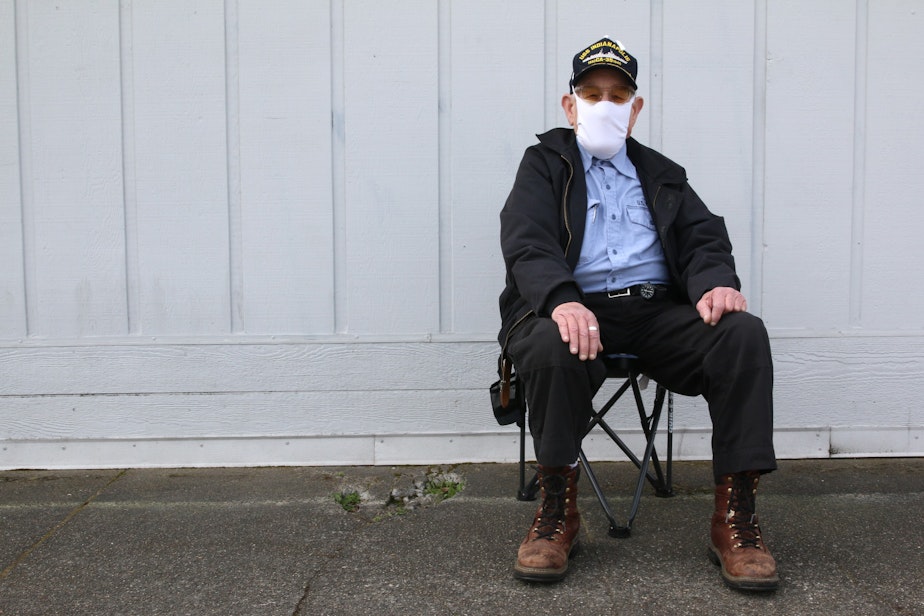
Sometimes Harwood stops in the Johnson Candy Company, where her father once bought a box of Valentine's day candies for her mother. Her father died 20 years ago, but her mother has gotten that same box refilled with new candy every year for 35 years.
On this day, the company founder’s grandson, Bill Johnson, is making chocolate-covered Easter eggs.
“Would you like to come inside and see us make some candy?” Johnson asked.
Yes, please.
Sponsored
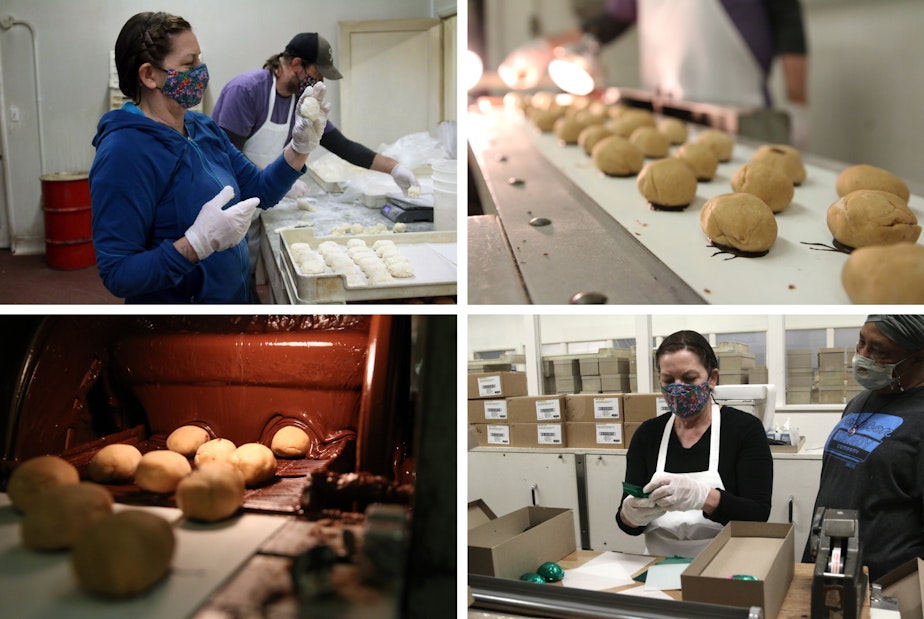
They roll out the centers: coconut, peanut butter, and Victorian creme. Next, Johnson sends them through a machine called an “enrober.”
“It’s just a long machine with a conveyor belt — and we’re gonna place the egg centers on here, and they get covered with chocolate."
They pass through a chocolate waterfall.
"Then they go through a refrigerated tunnel and the chocolate sets in the tunnel," Johnson said. And when it comes out the other end, someone’s standing there ready to take them off.”
Johnson said the company's sales are down because the pandemic forced them to close for awhile. And now that they’re open, they can’t fit as many customers in the store at a time.
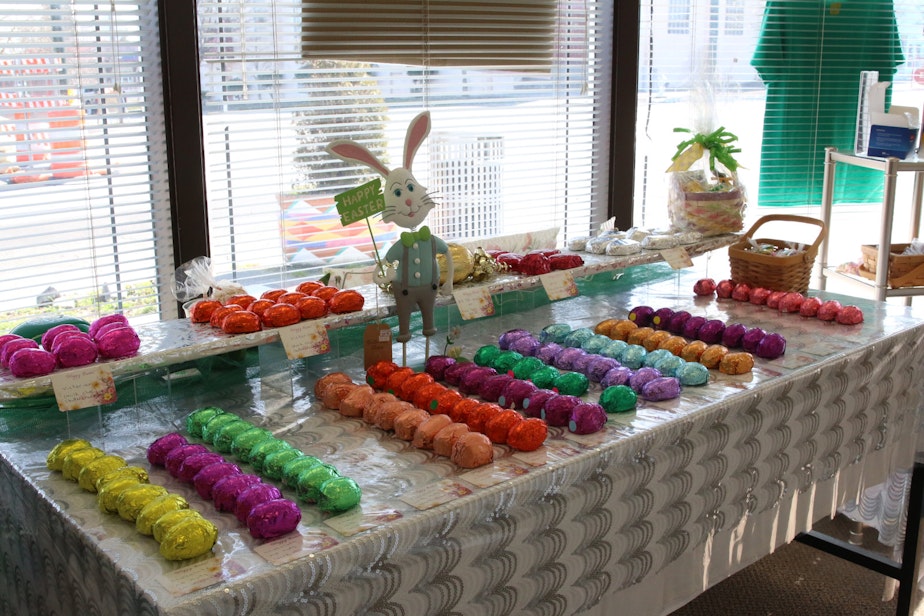
So they’ve finally started selling their Easter Eggs online. It’s a change this old-fashioned place has resisted for a long time.
They’ve had concerns, like: what if they can’t keep up with online demand? Or what if people balk at the cost of shipping? But Johnson said that even if online sales don’t work out, the neighborhood will be there for him.
“Like all small businesses, we kind of have a special place in the community," he said. "There are people who really appreciate having us here. And that’s just been amplified since this whole thing’s happened.”
All up and down MLK, businesses and neighbors of hilltop have supported each other through difficult times. Apparently, it’ll take more than a pandemic to stop that.
This story is part of a new series called The Main Street Project, where we aim to capture economic recovery by rooting our reporting on one street at a time.
RELATED: Seattle's Main Street: stories of pandemic hardship and reinvention.
Next week in this series, we hear from someone who's trying to help Hilltop recover without gentrification.
If you have an idea for a street where you live that deserves this kind of coverage, email jmcnichols@kuow.org.




